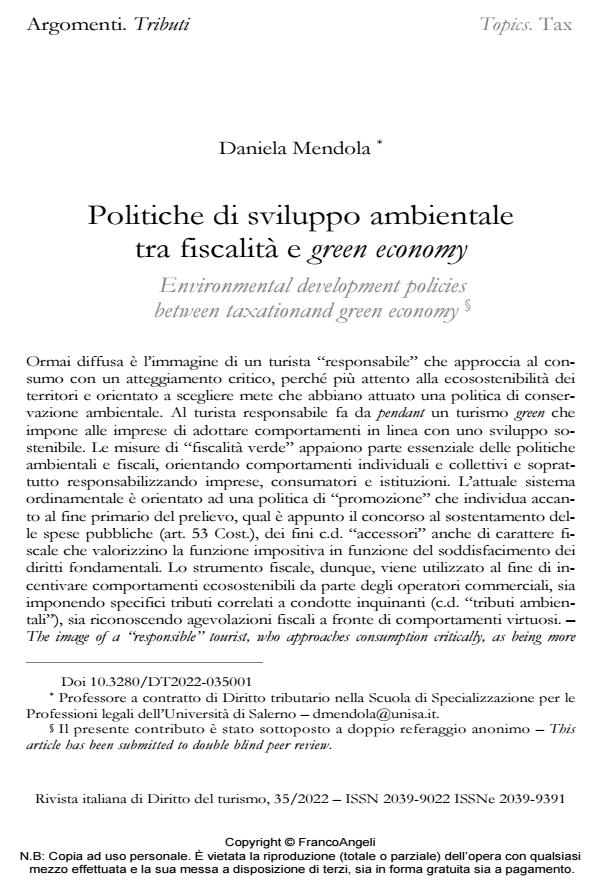Environmental development policies between taxationand green economy
Journal title RIVISTA ITALIANA DI DIRITTO DEL TURISMO
Author/s Daniela Mendola
Publishing Year 2022 Issue 2022/35
Language Italian Pages 20 P. 7-26 File size 226 KB
DOI 10.3280/DT2022-035001
DOI is like a bar code for intellectual property: to have more infomation
click here
Below, you can see the article first page
If you want to buy this article in PDF format, you can do it, following the instructions to buy download credits

FrancoAngeli is member of Publishers International Linking Association, Inc (PILA), a not-for-profit association which run the CrossRef service enabling links to and from online scholarly content.
The image of a "responsible" tourist, who approaches consumption critically, as being more careful to eco-sustainability and oriented towards choosing destinations that have implemented environmental conservation policies, is now widespread. The responsible tourist is complemented by a green tourism, that requires businesses to adopt behaviors in line with sustainable development. "Green taxation" measures appear to be an essential part of environmental and fiscal policies, by guiding individual and collective behavior and above all by empowering businesses, consumers and institutions. The current legal system is oriented towards a "promotion" policy, which identifies, alongside the primary purpose of tax levying, that is contribution to public expenses (Art. 53 of Constitution), also so-called accessory purposes, with a fiscal nature as well, which enhance the taxation function in order to satisfy fundamental rights. The fiscal tool, therefore, is used in order to encourage eco-sustainable behaviors by commercial operators, both by imposing specific taxes related to polluting conducts (so-called environmental taxes) and by recognizing tax benefits for virtuous behaviors.
- Environmental Taxation and the Circular Economy: What Are the Prospects in the European Context? Salvatore Antonello Parente, in Białostockie Studia Prawnicze /2024 pp.91
DOI: 10.15290/bsp.2024.29.01.06
Daniela Mendola, Politiche di sviluppo ambientale tra fiscalità e green economy in "RIVISTA ITALIANA DI DIRITTO DEL TURISMO" 35/2022, pp 7-26, DOI: 10.3280/DT2022-035001